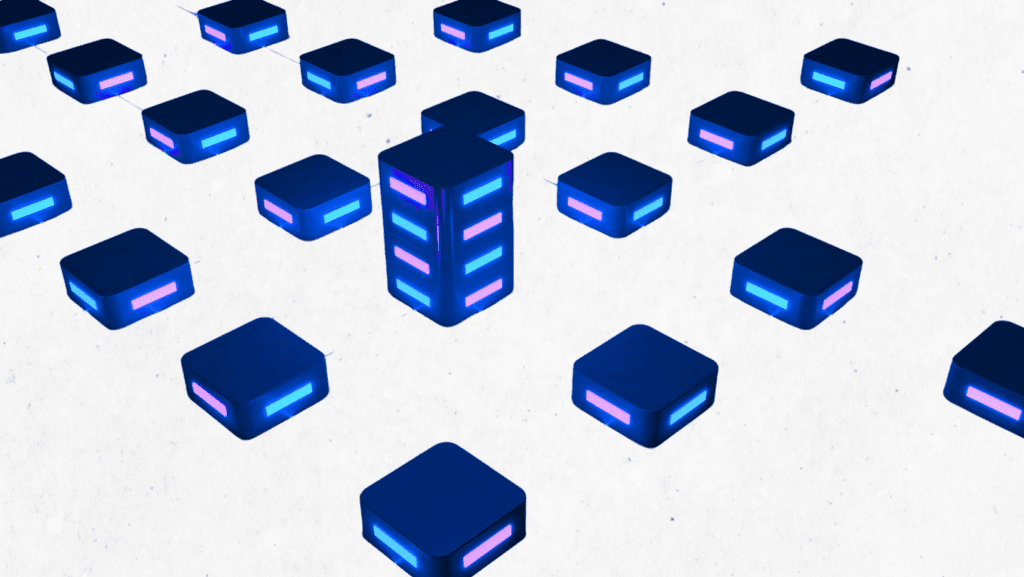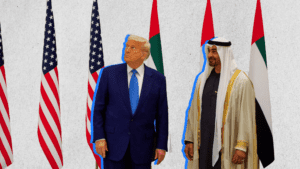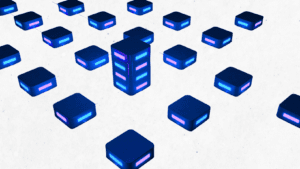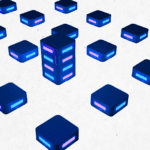So, what exactly is Real Estate Tokenization? Good question. And honestly, it’s one of those concepts where the more you break it down, the more it breaks your brain. Like time travel (Interstellar, anyone?), or even figuring out where your socks go in the washing machine. No one really knows, but we all pretend we do.
The point is, it’s not an easy concept to grasp. It’s one part real estate, one part blockchain, and about ten parts confusion if you’re not careful. And while it sounds like something out of a crypto cult manifesto, it’s actually becoming a very real part of how people invest in property, especially in Dubai.
Anyway, rather than send you down a rabbit hole of jargon, we’ve put together a simple guide to help you understand what real estate tokenization actually is, and why it’s taking hold in places like Dubai.
What is Real Estate Tokenization?
Before explaining real estate tokenization, let’s start with just “tokenization”. Now, what do you imagine when you see the word “token” or “tokenization”? Perhaps a coin or ticket, right? That’s essentially all it is.
Now, tie it in with real estate, and tokens are basically tiny digital shares or fractions of a property, letting multiple investors co-own real estate assets without having to buy the whole thing – all on a blockchain for secure and transparent transactions. Investors buy, sell, or trade these tokens, offering greater flexibility and liquidity compared to traditional real estate investments.
You might be wondering, what or where even is the blockchain? The simplest way to explain blockchain is by imagining a notebook, or a “digital ledger” that records each and every transaction. But instead of keeping it to yourself, everyone involved has a copy. So yes, it’s a little creepy, but whenever you make an update, everyone’s copy gets updated simultaneously, ensuring accuracy and transparency.

What’s the difference between Real Estate Tokenization and Real Estate Crowdfunding?
Both democratize access to Dubai’s real estate market. But, unlike digital real estate crowdfunding, which grants investors access to the real estate market via fractional ownership through digital platforms (like SmartCrowd), tokenization offers a distinct and more structured model for real estate investment.
Now, fractional ownership is the broader concept of owning a piece of a property and the core of real estate crowdfunding. Tokenization just takes that idea and runs it through a blockchain, making it more transparent, secure, and in many cases, easier to manage as it reduces paperwork and the need for intermediaries.
So, how does Real Estate Tokenization benefit investors?
Ultimately, in various ways, so we’ll just list them out for your scrolling pleasure:
- Lower Barrier to Entry
Tokenization enables real estate to be split into digital tokens, allowing investors to purchase small fractions of high-value properties. This is one of the most defining features of tokenization, making real estate investing accessible to more people, not just the ultra-wealthy.
- Liquidity
Unlike traditional property, which can take months (and lots of paperwork) to sell, tokenized real estate can be traded much faster and more easily on digital exchanges, something that’s traditionally very hard to do with real estate. Transaction and admin costs are slashed, effectively reducing the “illiquidity premium” that is a prominent feature of this asset class. Think of it like buying or selling stocks, but with actual bricks and mortar behind them.
- Global Accessibility
Live in Singapore but want to invest in Dubai real estate? Real estate tokenization breaks down geographic barriers. Investors from anywhere can access property markets that were previously off-limits, without heavy regulatory or logistical friction. This enables just about anyone to invest and diversify their real estate investment portfolio.
- Transparency and Security
Every transaction is recorded on a blockchain, which is basically an uneditable public ledger. Known to be resilient to cyberattacks, the use of blockchain tech makes every transaction traceable and secure, a unique advantage brought specifically by tokenization.
- Greater Efficiency (aka less paperwork)
Just like traditional real estate, tokenized assets can generate rental income. The bonus? With smart contracts in place, your returns can be distributed automatically. Smart Contracts are a key blockchain feature that facilitate process automation, from compliance and onboarding to dividend distribution. No running around, no landlord headaches, no chasing cheques.
What’s going on in Dubai?
Tokenization is gaining traction in the Middle East, especially in the Dubai real estate market where there’s immense potential. As Dubai’s property sector continues to attract global attention, real estate tokenization will in turn give a more diverse, dynamic, and broader pool of investors access to quality real estate purely as an investment class, and make it easier and far more economical to conduct secondary transactions in the marketplace.
From waterfront luxury to branded residences, tokenization opens Dubai’s high-end market to smaller investors, not just high-net-worth individuals. In a city that thrives on innovation and investor confidence, that’s a pretty huge deal.
For starters, in March 2025, the Dubai Land Department (DLD) kicked off the pilot phase of its Real Estate Tokenization Project. In collaboration with the Dubai Future Foundation and the Virtual Assets Regulatory Authority (VARA), the plan is to digitize property title deeds using blockchain technology.
With this project, Dubai will become the first city in the Middle East to digitize property title deeds using blockchain technology. And, by 2033, the market is expected to reach $16 billion (around 7% of Dubai real estate transactions), which could empower fractional real estate ownership and make Dubai’s market more accessible than before.

What are the challenges ahead?
As with anything in its early stages of adoption, there are some, let’s say, growing pains, involved. After all, the field of real estate tokenization, let alone tokenization, is new, and there are many unanswered questions and some ambiguity on some aspects of the process, particularly concerning data transparency and secondary trading.
- Regulatory Hurdles: Experts in the field say that it is very important to be clear about title transfers and secondary trading.
- Security Risks Beyond the Blockchain: Blockchain is secure, sure. But what about the platforms built around it? Their operating systems need to be just as safe as blockchain to protect investors.
- Adoption: It will take time for traditional investors to accept this tech-driven plan.
Suffice to say, the fine print still needs ironing out. Thus, Dubai’s pilot phase will be key for fixing these issues and making sure that tokenizing real estate is completely legal.
Future Outlook
If the pilot goes well (and all signs say it might), Dubai could lead the global shift toward tokenized property. That 7% projection by 2033 is in line with the Dubai Economic Agenda D33. With faster trades, more transparency, broader access, tokenization could soon become the new normal.
In short? This isn’t another passing trend. It’s quite literally the evolution of real estate investing. And Dubai’s not just watching it happen. It’s building it, block by block.
If you’re interested in fractional ownership of Dubai real estate, then check out our latest investment opportunities on the SmartCrowd platform. For updates on real estate tokenization and its progress in the UAE, stay tuned for new blogs as its adoption unfolds!
Disclaimer: This blog is intended solely for educational purposes and shouldn’t be treated as financial advice. We suggest you always conduct thorough research, perform your own due diligence, and consult with financial advisors to assess any real estate property against your own financial goals.






